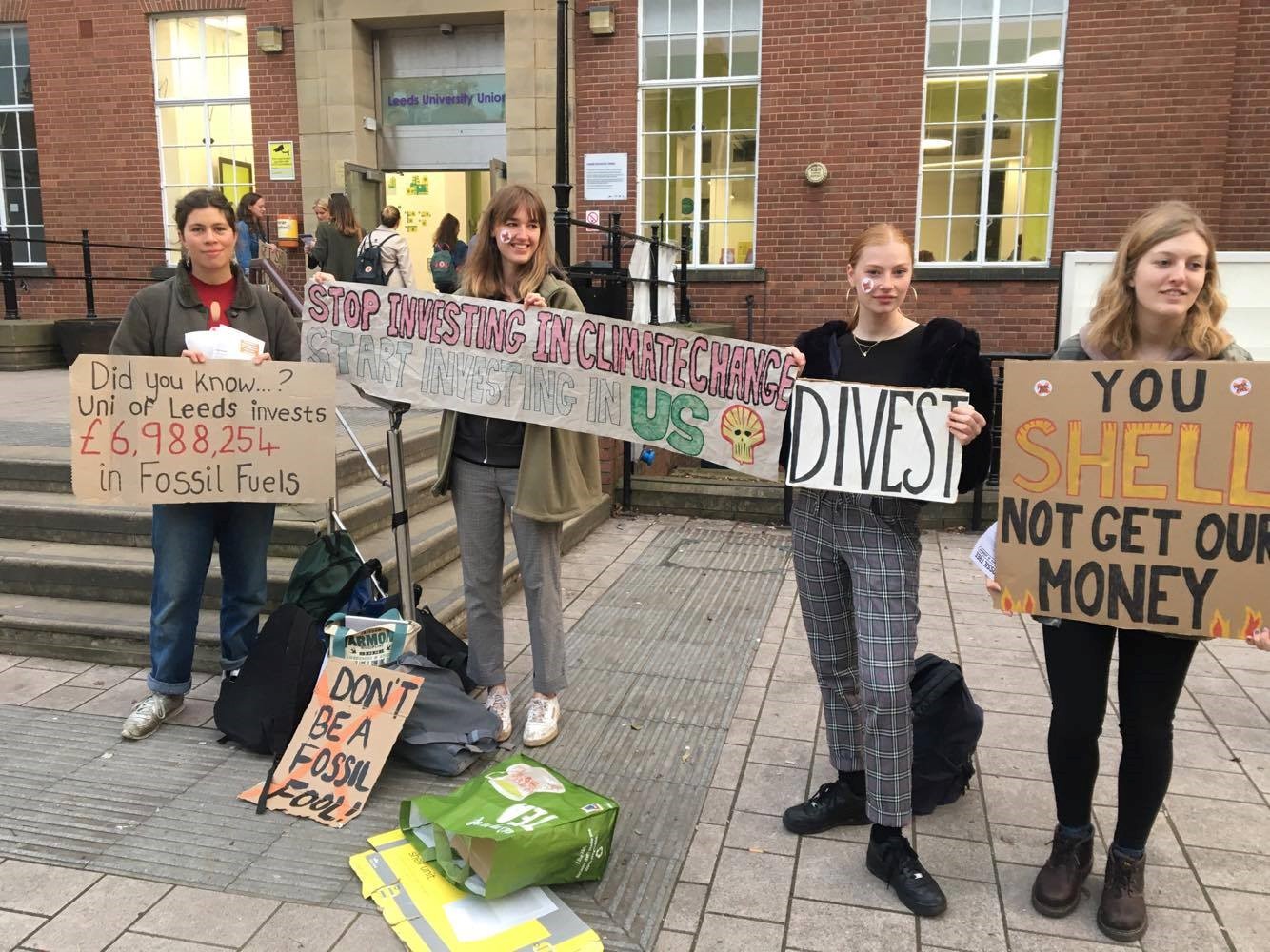On Monday 9th October, a group of students from People & Planet, a society at the university that protests against the use of fossil fuels, campaigned outside the university union. They campaign on a number of issues including the abolishment of fossil fuels, the use of which is leading us towards a global climate crisis. In line with their vision, People & Planet are determined to remove Shell from campus, despite the multinational oil and gas company providing funding for researchers at the university.
The society believe that “if it’s wrong to wreck the climate, then it’s wrong to profit from that wreckage”. They state that “our university invests nearly £7 million in fossil fuel companies and £400 thousand in Shell alone, meaning the university is directly profiting from climate change.”
A statement from the society’s president expressed that “The 2015 referendum shows 83% of students agree, they want the University to divest from fossil fuels. However, the University is continuing to ignore the student voice and lag behind the tide of Universities distancing themselves from this destructive industry. We now feel that taking direct action is our only option to ensure that student voices are heard”.
Amidst the controversy, I decided to interview a PhD Petroleum Engineering student at the university funded by a company part-owned by Shell in order to gain insight on the opposing end of the spectrum:
What area within the petroleum industry are you researching?
My work focuses on reducing fouling across the petroleum industry, but in particular, downstream processing.
As someone working in the petroleum field, will your work have caused any harm to the environment?
In theory, it would enable more oil reserves to be extracted and used but in reality, it would simply make processing cheaper and less energy intensive (consuming less energy than current) which would be good for both the economy and emissions. Whether or not it would be used to extract heavier oil would depend on how long it takes for renewable energy to be a serious contender for petroleum on a global scale.
What is your view on the campaign to “get Shell off our campus”? Do you think it would be possible to achieve this goal of turning to renewable resources?
As a university that is interested in research, and that, like it or not, that research needs funding, it is difficult to lock out fossil fuel companies when they’re such a huge part of the economy. As they are the bulk suppliers of energy to the UK, isn’t it in our best interests to improve the efficiency of the industry? And although on paper, investments in an oil company like Shell looks like an investment in fossil fuels, it’s important to remember that Shell themselves already invest heavily in renewables and are looking to increase this to $1 billion by the end of the decade. This money will, no doubt, make a significant contribution to the ultimate aim of green, renewable energy as we are currently not able to rely on these technologies for all of our energy.
The society’s counter-argument was that “Although Shell, and other companies, have invested some money in renewable energy, this amount is tiny compared to the rest of their company and not good enough. This year Shell pledged to spend 0.04% of their annual spending by the end of this decade. Although we would love for fossil fuel companies to turn around and say they were now going to only invest in renewables, this seems very unlikely from the green washing we are currently seeing”.
The university itself released a statement last year on their decision on fossil fuel divestment. In short, whilst they claimed that it is important to invest in renewable energy, it is not that simple. If the university relies on fossil fuels for its day-to-day activities, it would be unethical to simply divest from these companies which are proving its energy. They could not therefore divest from the use of fossil fuels.
Having said that, the University has acknowledged the fact that it is important to take action, and they continue to put pressure on fossil fuel companies to steer us towards a low-carbon future. According to People & Planet, although there are some issues with the renewable industry currently, investment in them rather that their competition will help spur innovation.
Laura Santos
Image: Laura Santos

